A farmer in the Southern Tier is one of a tiny number of Black farmers in New York state and he and his family are on a mission to boost that number.
James Minton, 86, owner of Triple J Farm in Windsor, moved to Broome County from Harlem after purchasing the farm about a decade ago. There, he raises chickens on 20 acres with the help of his 26 grandchildren, and more than 40 great-grandchildren and great-great-grandchildren.
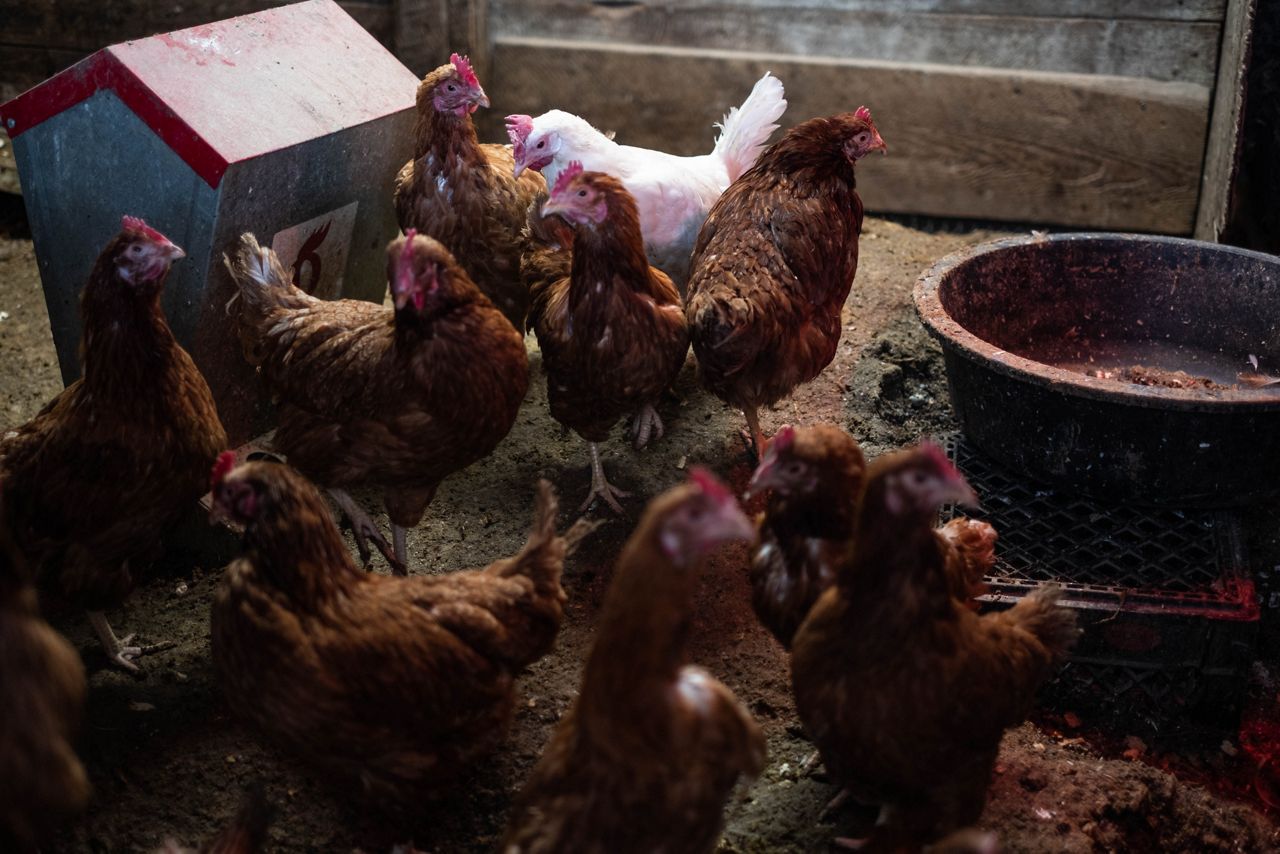
“It first started when my son wanted some dogs and I was going to raise them up here on the farm but that didn’t work out,” Minton said. “My neighbor had a few chickens, but then he left so I kept the chickens, and we started the bigger farm.”
Minton is one of just 139 African American producers out of 57,865 in New York, according to federal data. In 1920, the U.S. Department of Agriculture counted almost 1 million Black farmers in the United States, but that number plummeted in 2017 to 48,697.
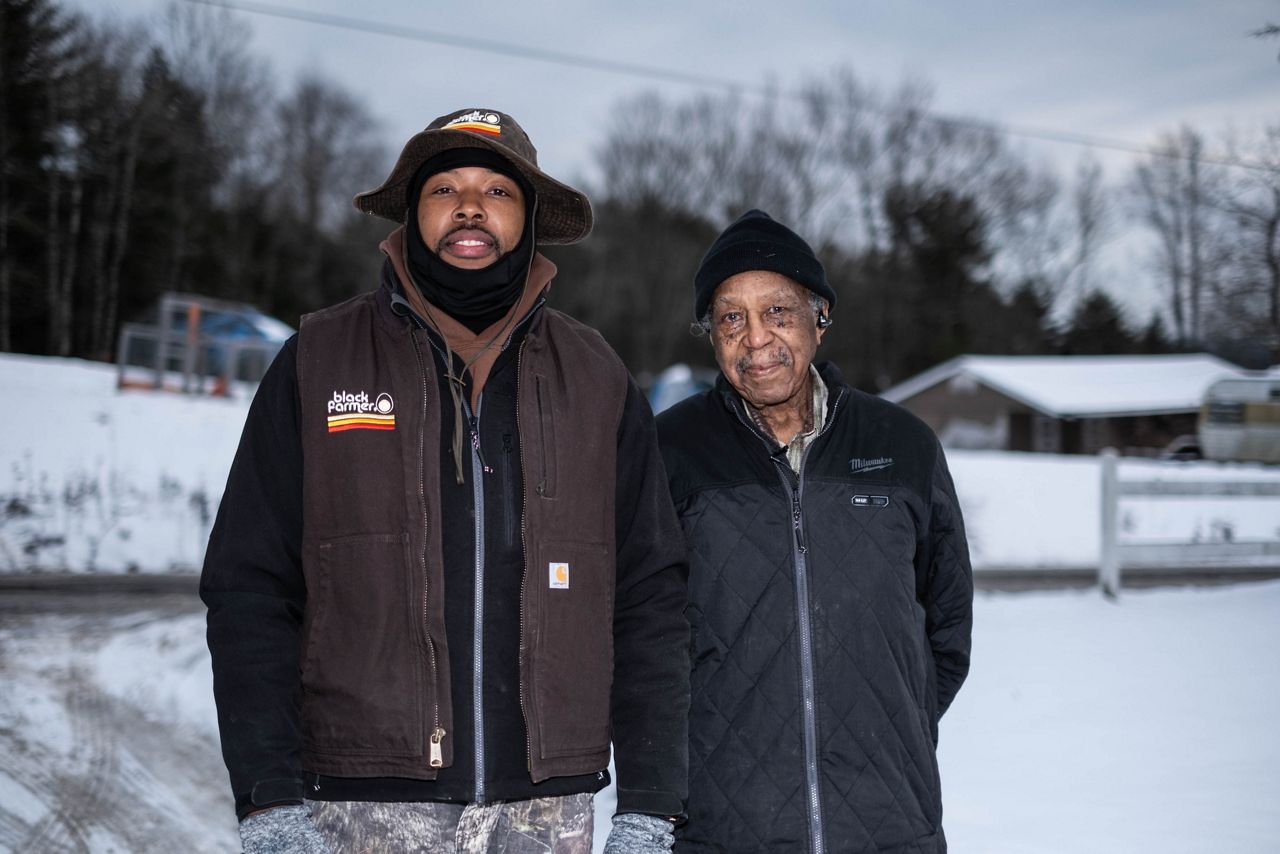
A future for the family
The strikingly low number of Black farmers spurred one of Minton’s grandsons, Jarrad Nwameme, 35, to create and push the message #MakeFarmersBlackAgain. The family wears clothing with the slogan and stamps the inside of egg cartons with that message.
“Those messages are empowering affirmations for our people to read every single morning when they’re making their breakfast,” Nwameme said.
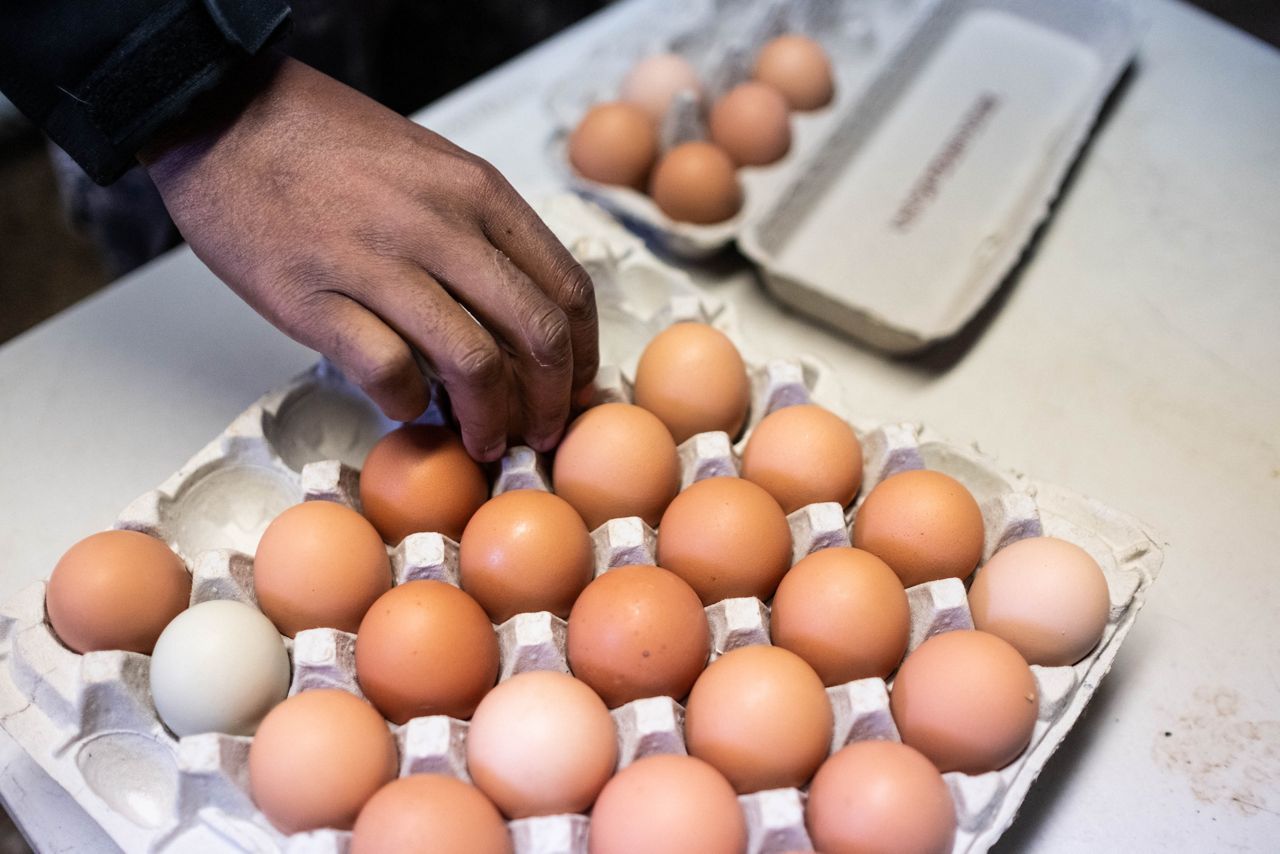
The roughly 1,000 dozen eggs produced each month are distributed locally and throughout New York City.
“It’s generational wealth that my grandfather bought in hopes to pass down to generations to come,” Nwameme said. “The fact that we have a home, and 20 acres, it means a lot to my family, and all I’m doing is the upkeep on the foundation that he laid.”
Nwameme lives in New York City but comes to Windsor to help his grandfather about once a month. Minton still loves to help on the farm (when his grandchildren allow him), but he says the farm is a gathering place.
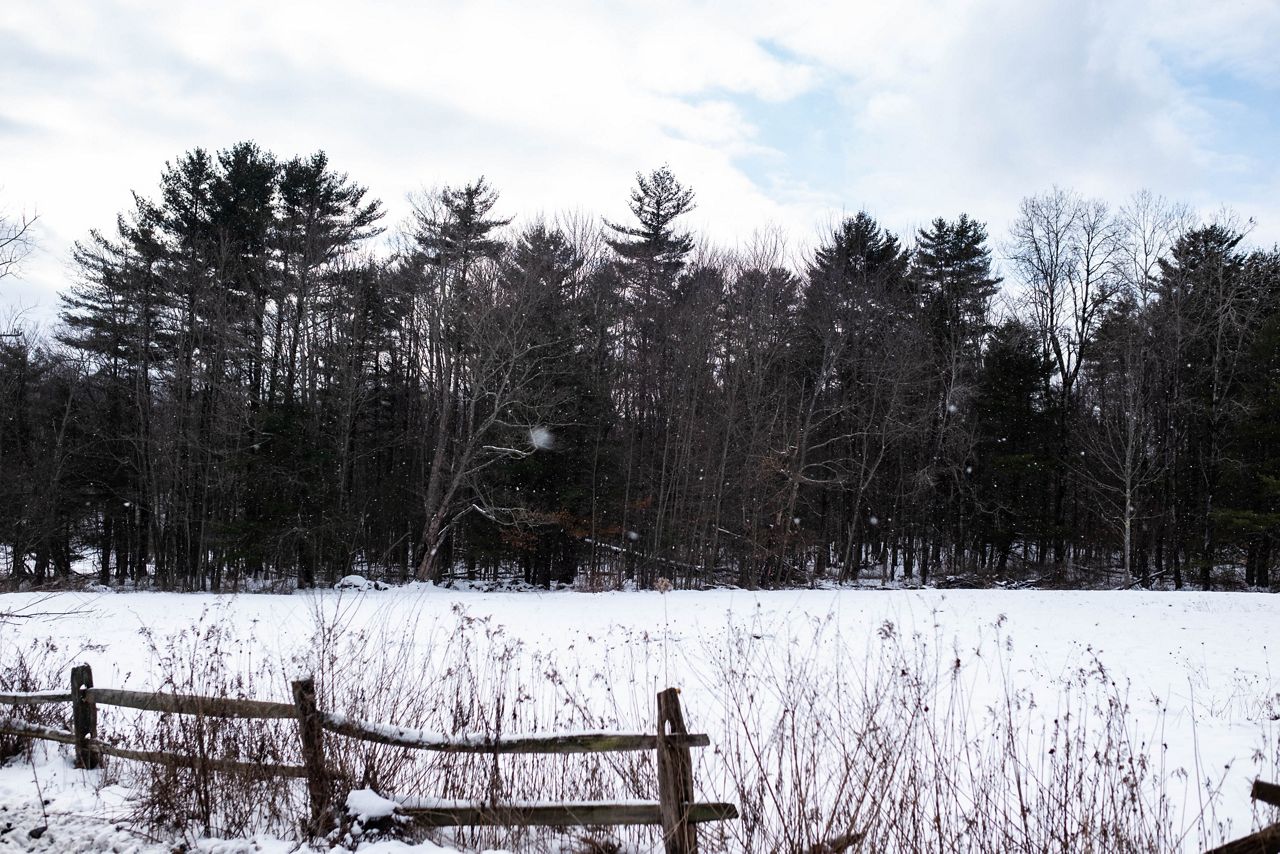
“This way they always have something to come to,” Minton said. “As long as there’s Minton descent, they can come stay here.”
Nwameme says one of the biggest challenges for Black farmers is lending discrimination, which is a key factor in young people of color being able to purchase land. A 2021 CNN report found that more farmers of color were rejected for loans compared with white farmers.
In a 2022 survey from the National Young Farmers Coalition, 59% of Black farmers polled said access to capital was one challenge they faced, and the other was finding affordable land to buy.
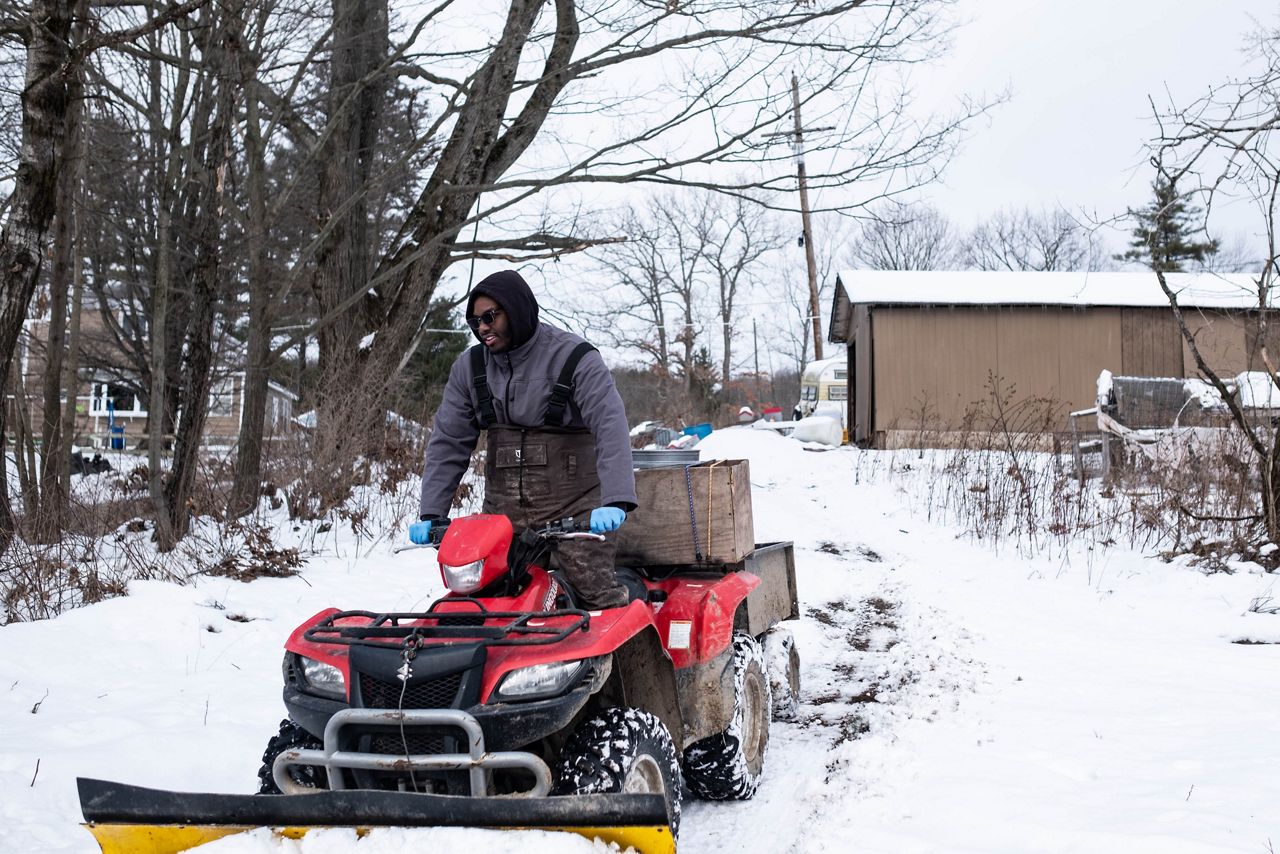
And while federal and state programs exist to help farmers out financially, finding the time to get information and fill out labor-intensive paperwork can be tough to come by.
“The thing about farming is that there’s so much to do with so little time, so I haven’t even touched the surface of working with the USDA,” Nwameme said. “Without the manpower and having someone to do the laboring on a day-to-day basis, it’s been hard to keep up with the things that we qualify for.”
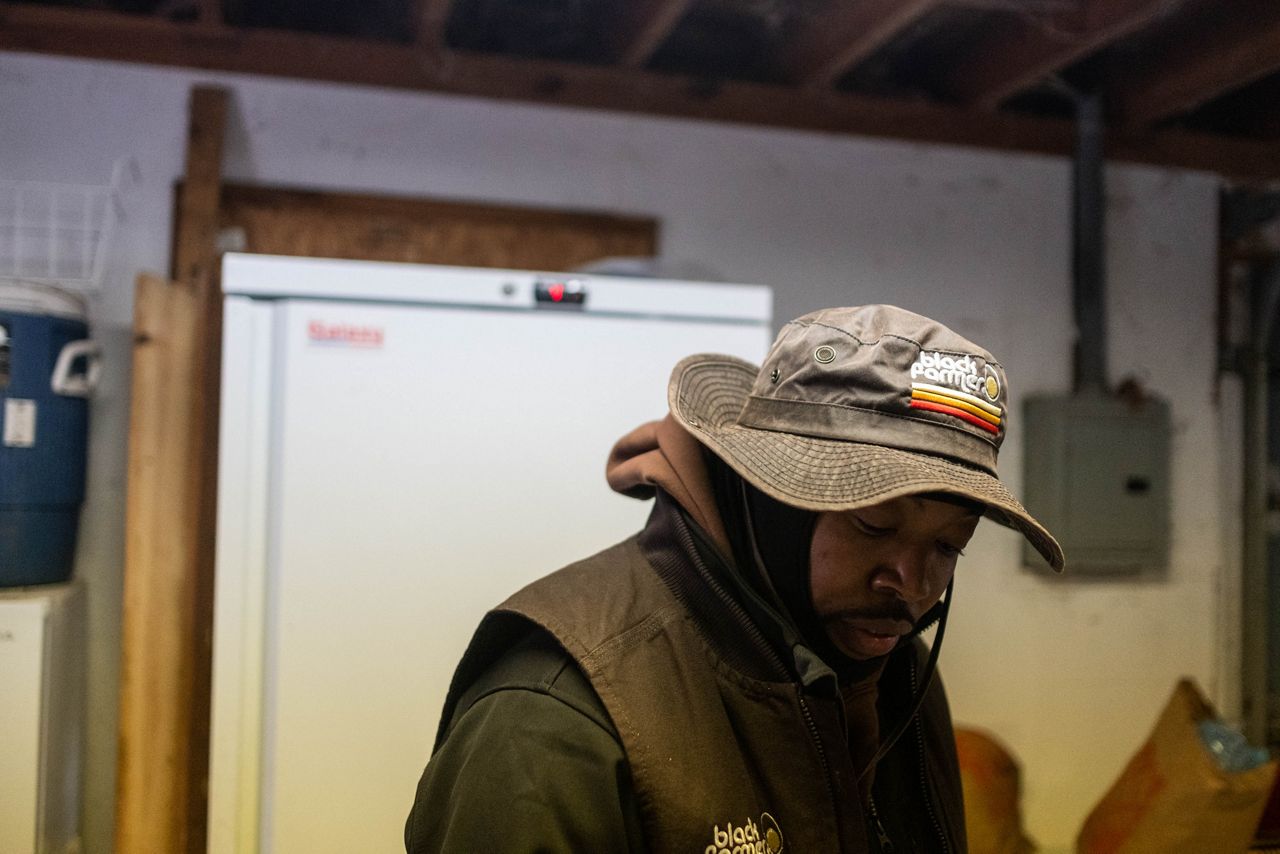
History of discrimination
“Give us our 40 acres” is another saying stamped on Triple J’s egg cartons, referring to the post-Civil War promise made by the federal government to give emancipated African American former slaves 40 acres, but it never happened.
The order, issued by Gen. William T. Sherman in January 1865, was designed to distribute confiscated land owned by Confederate soldiers in the South, but less than a year after the special order was given President Andrew Jackson said it needed to be returned to its original owners, according to Black Past, a non-profit organization dedicated to sharing the history of African Americans in the United States.
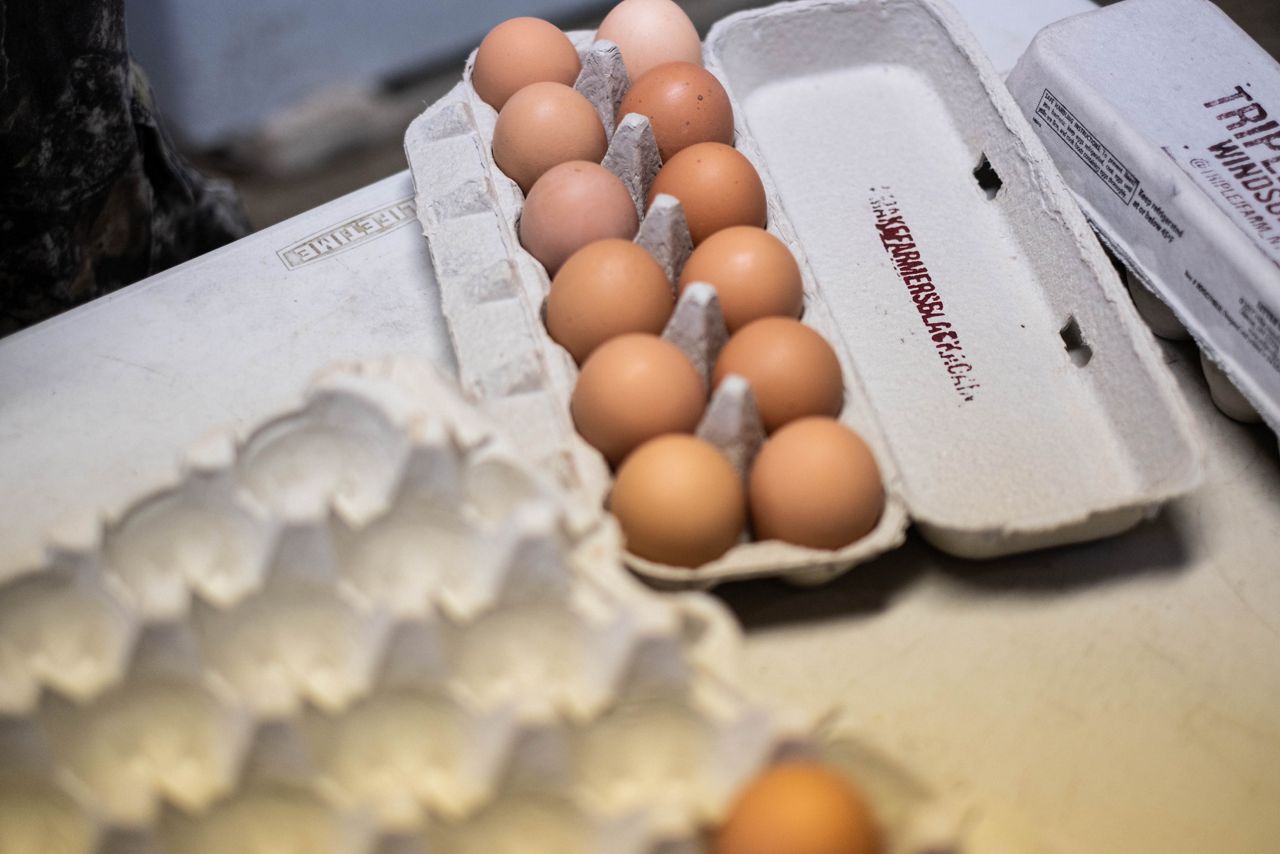
“We know that story, that’s been a common theme,” Nwameme said. “They give us one thing and then they take it away, so that’s why we’re really trying to keep up with the message and hopefully the guys that are fighting right now make it easier for us when we do decide to tap into that resource.”
Nwameme is referring to the current lawsuit filed by John Boyd Jr., president of the National Black Farmers Association, against the U.S. government that seeks to obtain funding for farmers of color, which was previously promised under the American Rescue Plan Act in 2021 but then rescinded when white farmers in Texas won a lawsuit removing race as a qualifying factor to receive funding.
Laura-Anne Minkoff-Zern, a professor at Syracuse University whose specialties include race, labor and immigration in the food system and agricultural politics and policy, said historically, Black landowners have faced an uphill battle.
“African American landowners have struggled historically in the United States not only with individual racism and lack of resource and capital, but also with structural racism with U.S. agrarian institutions,” Minkoff-Zern said. “Even when some Black farmers gained access to land of their own in the reconstruction era, many of those same families lost land access during the civil rights era, ironically.”
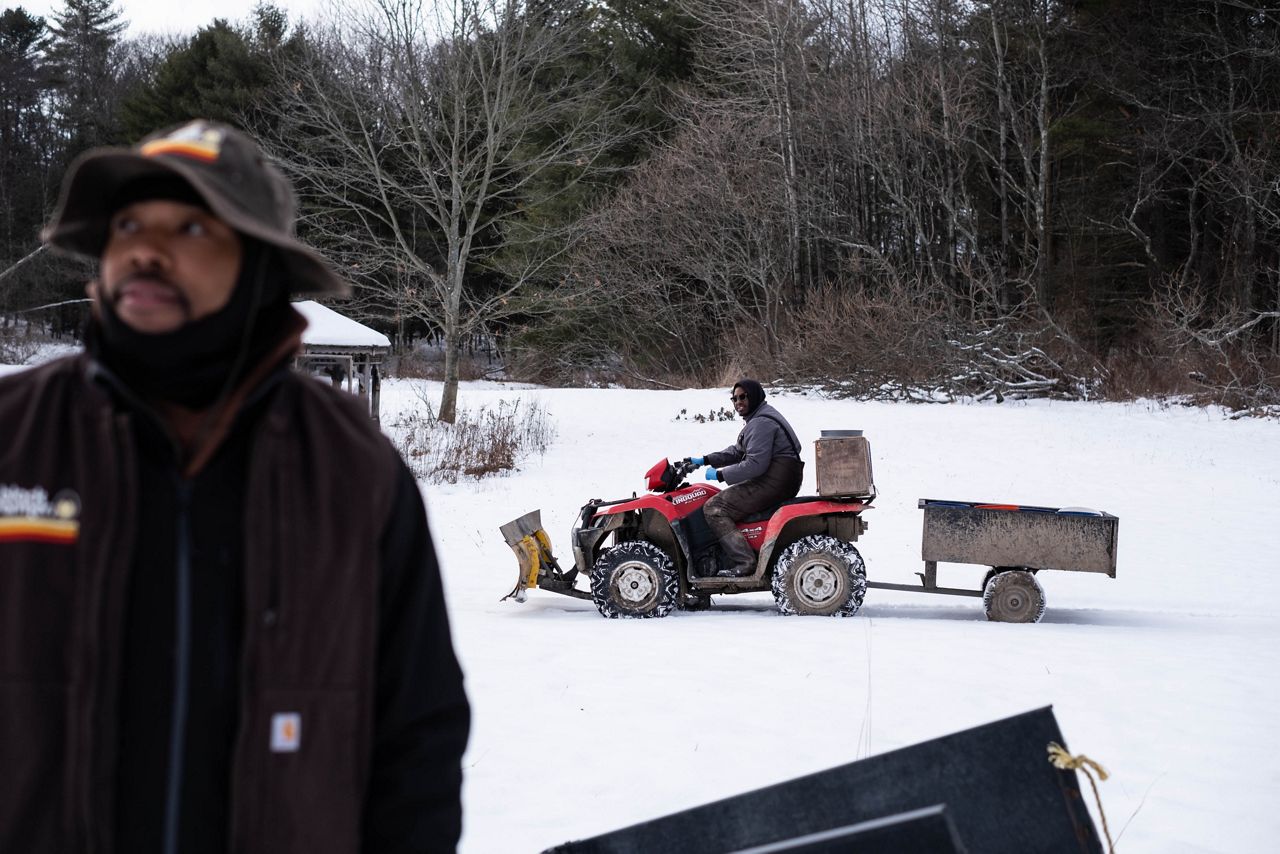
Minkoff-Zern said farming in the Unites States then scaled up to larger operations, and the USDA favored white farmers, who had more formal agriculture education and training and larger plots of land.
“Black farmers that had survived thus far struggled to compete as the pressure to go ’big or go home’ took over U.S. farming — and we saw an era of land and knowledge loss that affects the racial makeup of farming in the U.S. today,” she said.
In the meantime, Triple J Farm keeps encouraging more Black men and women to purchase land and create their own generational wealth.
“Hopefully, one day they buy land, they create generational wealth and demand 40 acres. Then eventually more Black farmers come about,” Nwameme said.
Despite the challenges Black farmers have faced, Nwameme remains hopeful for his family farm in the future.
“My hope for Black farmers in the future is equity,” he said. “I hope for more of us. As long as my grandfather lives, as long as I’m alive, and as long as we have laid this foundation for generations to come, my whole family is going to benefit from having this farm.”



